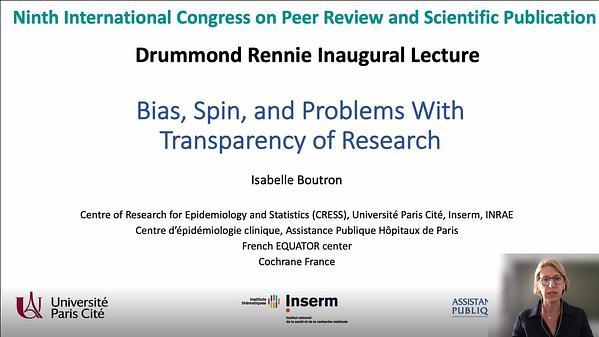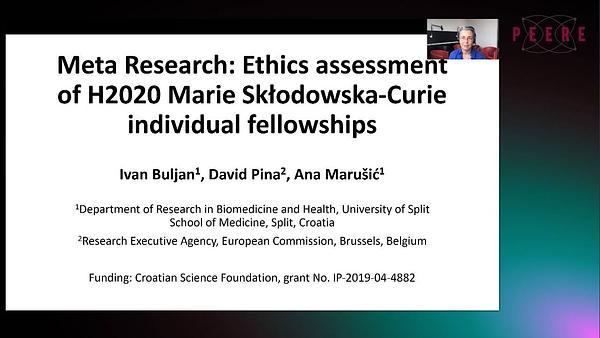poster
Research and Publication Ethics Knowledge and Practices in the Health and Life Sciences: Findings From an Exploratory Global Survey
keywords:
ethics and ethical concerns
misconduct
Objective To examine the levels of awareness, preferences,
experiences, and practices of researchers in the health and life
sciences regarding research and publication ethics.
Design In this cross-sectional study, a questionnaire was
deployed on Google Forms to a global audience. Reminder
emails and WhatsApp messages containing a brief description
and a link to the online survey were sent through the various
platforms until no new responses were received after 3
reminders. The form captured information regarding the
sociodemographic characteristics of respondents. The
questionnaire explored the level of awareness, training,
attitudes toward, preferences, and experiences with research
ethics committees. Regarding publication ethics, the
awareness of respondents regarding the International
Committee of Medical Journal Editors (ICMJE) authorship
criteria and their experiences with ghost authorship were
evaluated. All researchers working in the health and life
sciences were eligible to participate in the study.
Results A total of 500 researchers were contacted, and 264
responded (53.0%). Only 36.7% of respondents were aware of
the ICMJE authorship criteria. Less than a quarter (22.0%) of
the respondents were aware of the existence of an ethics code.
Respondents’ experience with their most recent ethics
approval application was poor (11.4%), good (36.0%), and
excellent (4.2%). The practice of research teams to include
authors with no or limited significant contribution to an
article was frequent (44.3%), common (29.5%), and systemic
(10.6%). More than 41.7% of the respondents had ever
conducted a study involving human participant research
without prior ethical approval. Respondents’ experience with
their most recent ethics approval application was poor
(11.4%), good (36.0%), and excellent (4.2%). Major challenges
in obtaining ethical approval were too much bureaucracy
(47.3%), ethical approval application cost (5.3%), and unduly
long review turnaround in receiving feedback and decisions
(3.8%). Most respondents (83.0%) worked in institutions that
hosted a research and ethics committee. Less than half
(42.4%) of the respondents had been formally trained in
publication ethics.
Conclusions Rates of ethical misconduct, such as having no
ethical approval prior to conducting a study or gift and ghost
authorships, were unacceptably high. Formal training in
research and publication ethics should be institutionalized in
the courses in universities and research institutions.
Academic journals and funders have the duty to support
researchers to uphold research ethics and research integrity
standards. Institutionalization and awareness raising
regarding these best practices are highly needed.
Conflict of Interest Disclosures None reported.


